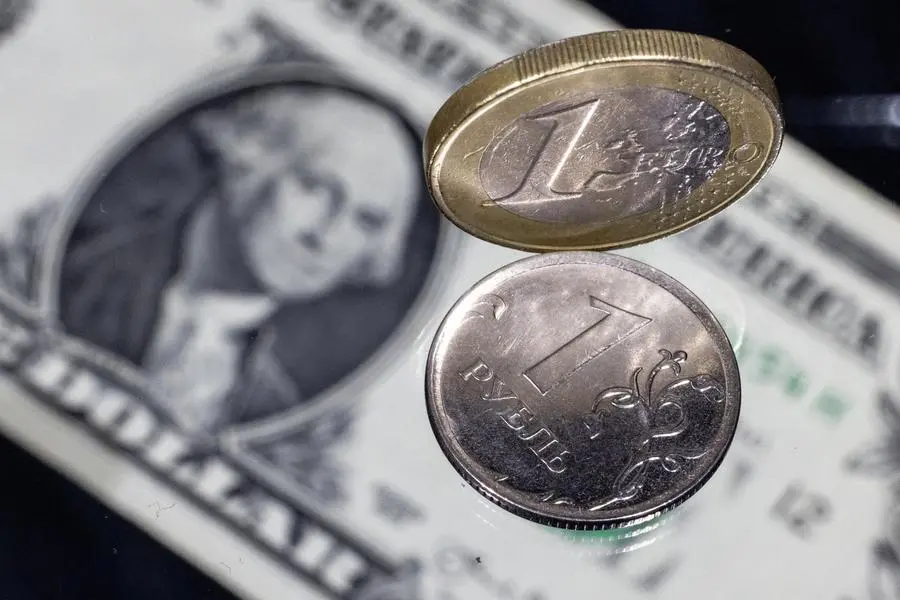PHOTO
The Russian rouble jumped on Wednesday to around a two-year high against both the dollar and the euro, retaining the support of hefty capital controls as the European Union proposed a new package of sanctions against Russia over events in Ukraine.
European Commission President Ursula von der Leyen proposed a phased oil embargo on Russia, as well as sanctioning its top bank and banning its broadcasters from European airwaves, in a bid to deepen Moscow's isolation.
By 0843 GMT, the rouble was 2% stronger against the dollar at 69.53, after touching 68.6250 in early trade, its strongest since June 2020.
It had gained 2.1% to trade at 73.19 versus the euro , earlier hitting 72.00, its strongest point since February 2020.
Movements on Russian markets are affected by the rouble being propped up by capital controls, while stocks are trading with a ban on short selling and foreign players barred from ditching shares in Russian companies without permission.
Market participants question if the current rate is sustainable in light of the curbs, after the rouble sank to a record low in early March as Western nations pounded Moscow and its financial system with unprecedented sanctions.
Russian markets were reopening after the first of two consecutive long weekends to mark the May holidays.
"With many investors still on vacation, trading volumes should be subdued this week," Sberbank CIB analysts said in a note.
Investors were treated to a busy final day of trading before the holidays on Friday, as the central bank slashed rates by 300 basis points to 14% and the finance ministry said it had managed to pay interest on dollar Eurobonds, an apparent late swerve to avoid default after previously vowing to pay only in roubles.
Russian stock indexes were mixed.
The dollar-denominated RTS index was up 0.4% to 1,085.6 points. The rouble-based MOEX Russian index was 2% lower at 2,396.4 points.
Shares in Russia's largest lender Sberbank underperformed, falling 3.4% after the European Commission proposed removing it and two other banks from the international SWIFT transaction and messaging system.
Veles Capital analysts said the sanctions on banks were unpleasant for the sector, but not critical.
Flag carrier Aeroflot was the outlier, climbing 1.3% on the day, after the airline's board recommended increasing the company's share capital. (Reporting by Reuters; Editing by Clarence Fernandez and Alex Richardson)





















